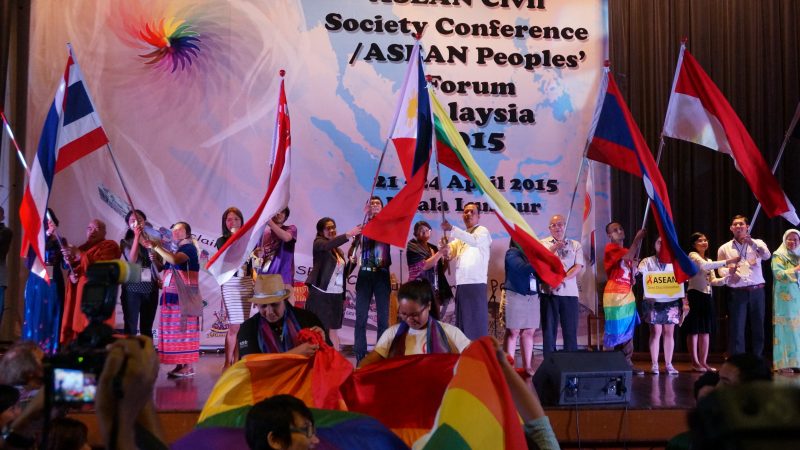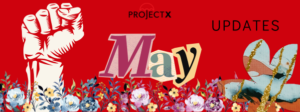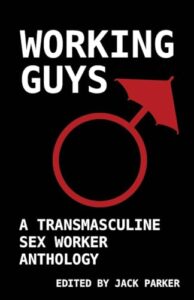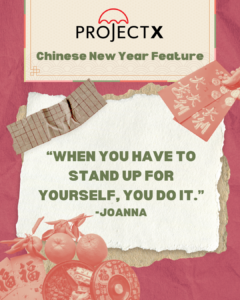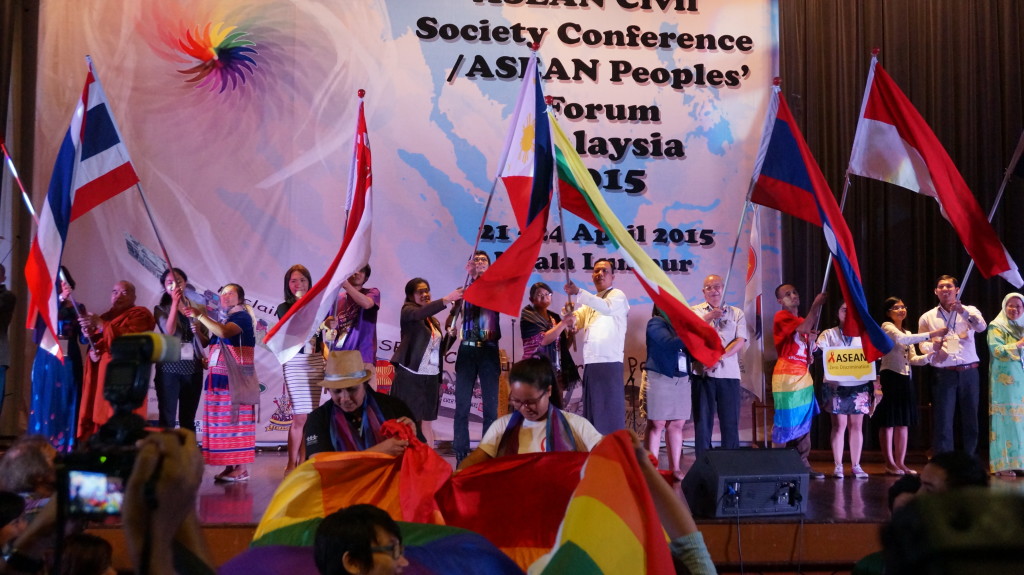
The annual ASEAN People’s Forum/ ASEAN Civil Society Conference took place from the 21st to 24th of April 2015 in Kuala Lumpur. It is a conference that aims to bring together civil society groups and activists from all around the region to discuss key human rights issues that people face. The theme for this year is “Reclaiming ASEAN for the People”—in an effort to remind Heads of States that ASEAN should not be an “elite club” but one that truly and sincerely has the interests of the people at heart. The full statement crafted by civil society organizations can be accessed here.
As was evident throughout the conference, “reclaiming ASEAN for the people” remains a pipe dream—for now. During one of the plenaries titled “How to Make the ASEAN Economic Community (AEC)[1] People-Responsive”, panellists discussed the agenda of the 2015 ASEAN Economic Community blueprint and how it would or would not benefit the people. Anthony Tujan (IBON Philippines) set the stage by delineating how there are two ASEANs—one for the rich and one for the people[2]. As such, Tujan asks—to whom does the agenda of the AEC belong to? The second speaker Dr Munir Majid (Chair of ASEAN Business Council) concludes that because the people were not consulted in the process of drawing up the blueprint, there isn’t a sense of ownership. He argues that despite that, the AEC has its benefits for the people. Eni Lestari (International Migrants Alliance, Indonesia), followed by arguing that domestic workers among many other marginalized communities still face many forms of human rights violations that are not addressed by the agenda of the AEC. Dr Seree Nonthasoot (AICHR Thailand) ended the panel by arguing that the way forward is to mainstream cross-cutting issues such as human rights and environmental sustainability across the three (separate and often non-collaborative) pillars of ASEAN—the Economic, Socio-Cultural, and Political-Security pillars.
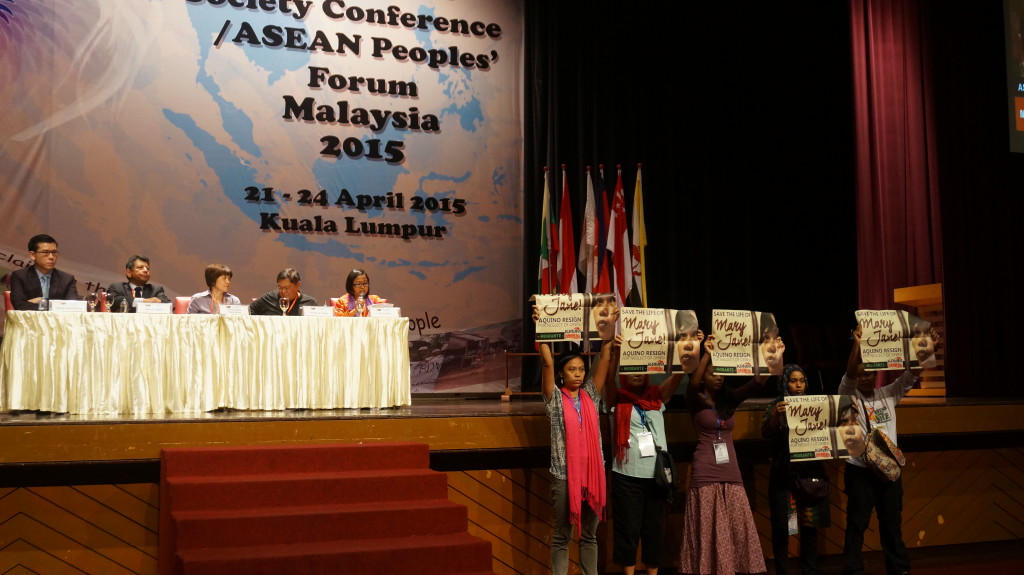
Throughout the conference, workshops were divided into four broad themes: development justice; democratic processes, governance, and fundamental rights and freedoms; peace and security and discrimination and inequality. Participating organizations included Amnesty International, the ASEAN SOGIE Caucus, Open Society Foundations, Forum Asia, International Women’s Rights Action Watch Asia Pacific (IWRAW-AP), WITNESS and so on. Project X decided to attend the conference in order to learn more about ASEAN, human rights in ASEAN, and to also represent sex worker issues at the conference.
Associate Program Coordinator Lisa said that, “I felt it was a good exposure for me to gain knowledge and understanding of the main problems that others in Southeast Asian countries are facing. Basically my understanding is that most of the countries in the region are voicing out their right to freedom of speech and expression, claiming the right of decent work and salary, cutting down on the high cost of living in each country, etc.”
Unfortunately, the team members felt that Singapore was highly underrepresented at the conference. Youth Programme Coordinator Sherry commented, “I agree [that Singapore is a developed country and that we have to recognize our privilege]. But that is what is seen and heard by the citizens of Singapore who enjoy the privilege of being a Singaporean. Behind the good, clean and impressive image others have about Singapore, there are still people who are struggling and being discriminated. LGBT, and in particular most transgender people, face unfairness in employment. This results in us holding odd jobs. And those who are financially unstable, result in low education and in the future that means they will be paid low wages. What good seen outside, does not reflect the inside. Take a closer look, don’t just glimpse.”
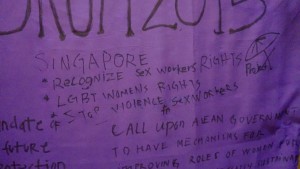
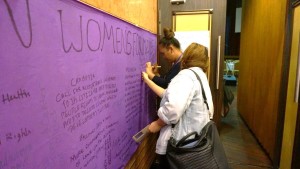
The conference ended with an ASEAN Walk. While street demonstrations and marches in Singapore are largely illegal, it is a very empowering activity. Even though the team was initially hesitant at participating in the march—somewhat due to the police presence at the event – we eventually embraced the opportunity.
Youth Programme Coordinator Maya said, “At the walk I felt so blessed. We were marching and all of us that marched belong to a marginalised community. We shouted and roared to everyone the issues that we are suffering. Somehow to me, it is very empowering. I felt like I’m doing something to make a difference in the community—to help and be the voice of the marginalised community!”
Lisa similarly shared that, “I value the opportunity to see and feel how united every participant is in trying to make changes for their human rights in their respective countries.”
On attending the conference as well as the march, Sherry said, “It was very empowering to see 10 countries gathering to seek knowledge and words of wisdom from respective workshops. One for example: seek justice for Mary Jane. I find it very united of the fellow citizen to gather and seek justice not only for her, but for all migrant domestic workers. We all know and can relate the pain and sadness working across the border far apart from family, not having anyone close to share anything with. And as for me, I joined the SOGIE[3] contingent. It’s basically what I’m fighting for now here in Singapore, the only difference is that I now know more about what other LGBTIQ people from other countries face.”
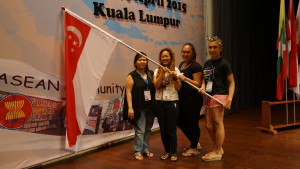
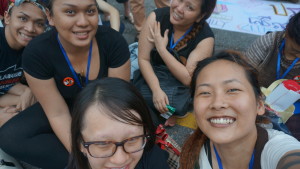
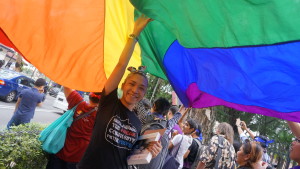
[1] The AEC is a blueprint that aims to achieve regional economic integration. It envisions the following key characteristics: (a) a single market and production base, (b) a highly competitive economic region, (c) a region of equitable economic development, and (d) a region fully integrated into the global economy.
[2] While poverty rates have decreased since the 90’s, income inequality continues to plague the region. As of 2013, there are 83 billionaires in 6 ASEAN countries—even one in Viet Nam. In the Philippines, which has one of the highest inequality in the world, there are 17 billionaires. This is exacerbated by problems such as land grabbing and various environmental challenges.
[3] SOGIE stands for sexual orientation, gender identity and expression.


